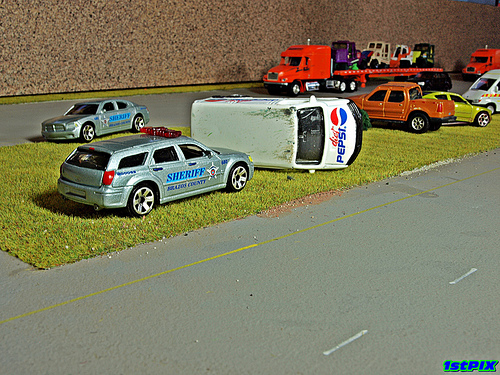Without knowing any better, one might believe that most lawsuits are frivolous. This is a popular message in American society spread through ignorance and deceit. The truth reveals a different reality.
Through my blog, I will attempt to debunk through facts and reason this false notion regarding lawsuits. It will be undertaken in multiple installments.
The first thing to understand is that, for the past 30 years, big business has made a concerted effort to undermine the integrity of the civil justice system. The reason why is simple: Profits over people.
The civil justice system is the best vehicle an individual in our society has of holding a much stronger corporation accountable for wrongdoing. When the system works as designed by our Founding Fathers, powerful companies can be made to answer to judges and, more importantly, jurors.
Not happy with being held accountable, big business has undertaken a campaign to undermine the integrity of the civil justice system. In addition to the creation of laws making it more difficult for individuals to pursue claims, big business has developed a successful propoganda machine designed to pollute the minds of our citizenry against individuals who bring claims against companies.
Hardly an adult in America has not heard the expression “Frivolous Lawsuit.” Unfortunately, nearly every potential juror has been tainted with the false concept, some of whom are downright hostile against individuals who would sue a company. It a classic counter intuitive response: Everday Americans reflexively siding with big business over “We, the People.” Sad but true.
Big business is patting itself on the back for successfully turning individuals against their own best interests. They are laughing at you and me for being such fools.
In Florida, the minimum cost to file and serve a lawsuit on a single party is nearly $500. $500 is $500, not small change to most people, especially nowadays, including lawyers and law firms. Add in the fixed costs of rent, supplies, and salaries and the cost of filing a lawsuit approaches upwards of $1,500-$2,000. (This does not include, for example, the requirement in medical malpractice cases of obtaining an expert opinion before filing suit, which, depending on the complexity and seriousness of the case, can easily cost more than $5,000, or the practical need in other cases to obtain an expert’s knowledge before filing suit.)
The point is, it takes a significant amount of time, energy, and money to get a case off the ground. This is all without any guarantee whatsoever of being paid penny one in the case, even the strongest case. That’s right, contrary to the false ideas spread by the propogandists and those who have been duped into believing their garbage, the mere fact of filing a lawsuit does not assure a recovery. What it does guarantee is a knock-down, drag-out fight. I liken the consequence of filing a lawsuit to being on the back of an angry bull as it leaves the cage with the sole intent of bucking the rider off its back. Hold on tight and expect a rough ride.
Given the significant initial expense of filing suit and the uncertainty of success, does it make sense that lawyers make a practice of filing baseless (i.e., “frivolous”) claims? Not in the common sense world in which I try to live.
Stay tuned for more installments.
Continue reading
 Adopted in 1920, Florida’s dangerous instrumentality doctrine imposes strict vicarious liability upon the owner of a motor vehicle who voluntarily entrusts that motor vehicle to an individual whose negligent operation causes damage to another. See Southern Cotton Oil Co. v. Anderson, 80 Fla. 441, 468, 86 So. 629, 637 (1920). As expressed in Southern Cotton Oil:
Adopted in 1920, Florida’s dangerous instrumentality doctrine imposes strict vicarious liability upon the owner of a motor vehicle who voluntarily entrusts that motor vehicle to an individual whose negligent operation causes damage to another. See Southern Cotton Oil Co. v. Anderson, 80 Fla. 441, 468, 86 So. 629, 637 (1920). As expressed in Southern Cotton Oil: Florida Injury Attorney Blawg
Florida Injury Attorney Blawg




